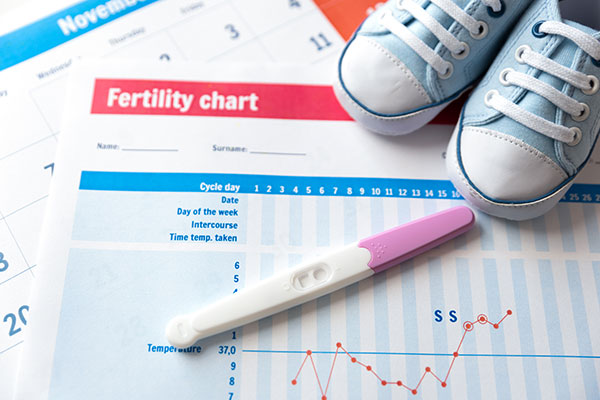Planning for a baby is an exciting journey, and preparing your body and mind beforehand can make all the difference in ensuring a healthy pregnancy and a happy start to parenthood. At North Pointe OB/GYN in Cumming, we’re here to support you every step of the way. As you look ahead to 2025, consider these five essential steps before getting pregnant to optimize your health…
Category: Pregnancy
The Latest Research on Pregnancy and Exercise
Maintaining physical activity during pregnancy has long been recognized for its benefits to both mother and baby. Recent studies continue to shed light on the positive impacts of exercise during this critical period.
Round Ligament Pain: Navigating Pregnancy’s Growing Pains
Pregnancy is an incredible journey filled with many magical moments. However, it also comes with its fair share of discomforts, and round ligament pain is one that often catches expectant mothers by surprise. If you’ve been experiencing sharp, sudden pains in your lower abdomen or groin area, you’re not alone. Let’s dive into what round ligament pain is, why it happens, and
Midwife Frequently Asked Questions
At North Pointe OB/GYN in Cumming, we understand that choosing the right care provider for your pregnancy and childbirth is a significant decision. Midwives play a crucial role in providing personalized, compassionate care throughout the pregnancy journey. To help you understand the role of midwives and what they offer, we’ve compiled this comprehensive FAQ guide.
Top 10 Questions to Ask Your Gynecologist
Navigating your gynecological health can be a journey filled with questions and uncertainties. Here are the top 10 questions we recommend asking your gynecologist to empower your health and well-being.
The Vital Role of Folic Acid During Pregnancy
Pregnancy is a time of significant changes and careful health management. One of the most critical elements for a healthy pregnancy is the intake of folic acid. North Pointe OB/GYN in Cumming highlights the crucial role of this vitamin in prenatal care, emphasizing its benefits for both the mother and the developing baby.
What is Folic Acid?
Folic acid is a synthetic form of folate, a B-vitamin (B9) found naturally in certain foods. It is vital for the creation of new cells, making it essential during periods of rapid growth such as pregnancy and infancy. Folic acid helps prevent neural tube defects (NTDs) in the developing fetus, serious birth defects of the brain and spine, such as spina bifida and anencephaly.
Why Folic Acid is Essential During Pregnancy
1. Prevents Neural Tube Defects: The primary benefit of folic acid intake during pregnancy is the significant reduction in the risk of neural tube defects in newborns. NTDs can lead to severe disabilities or even infant death. Consuming adequate folic acid before conception and during early pregnancy lowers the risk of these defects.
2. Supports Placental Development: Folic acid is also essential for the growth and development of the placenta, the organ that supplies oxygen and nutrients to the developing baby. A healthy placenta is vital for a successful pregnancy.
3. Reduces Other Birth Defects: Apart from preventing NTDs, adequate folic acid intake is associated with a lower risk of other birth defects, including cleft lip, cleft palate, and certain types of heart defects.
4. Promotes Maternal Health: Folic acid benefits the mother’s health by reducing the risk of preeclampsia, a potentially dangerous condition characterized by high blood pressure and damage to organ systems, most often the liver and kidneys.
How to Ensure Adequate Folic Acid Intake
North Pointe OB/GYN recommends the following to ensure adequate intake of folic acid:
1. Folic Acid Supplements: Women of childbearing age should take a daily supplement of 400 to 800 micrograms (mcg) of folic acid. Women with a history of NTDs in previous pregnancies may need a higher dose, as advised by their healthcare provider.
2. Diet: Incorporate folate-rich foods into your diet, including dark leafy greens, fruits, nuts, beans, peas, dairy products, and fortified foods such as cereals and bread.
3. Prenatal Vitamins: Most prenatal vitamins contain the recommended amount of folic acid. Start taking prenatal vitamins before conception, if possible, and continue throughout pregnancy.
4. Regular Check-ups: Attend all prenatal appointments with your healthcare provider at North Pointe OB/GYN. These visits are crucial for monitoring your health and the development of your baby, including the effectiveness of folic acid intake.
Talk to Our Prenatal Experts for More Nutrition Advice
Folic acid plays a vital role in ensuring a healthy pregnancy and minimizing the risk of birth defects. By taking folic acid supplements, eating a balanced diet, and attending regular prenatal check-ups, expectant mothers can significantly contribute to the health and well-being of their developing baby. North Pointe OB/GYN in Cumming is dedicated to providing comprehensive prenatal care and guidance, ensuring that every pregnancy is as healthy and successful as possible. For more information on folic acid and prenatal care, contact our office today.
Anticipating Arrival: 5 Signs That Labor Is Near
The final weeks of pregnancy are filled with anticipation and excitement, as expectant mothers and their families eagerly await the arrival of their new addition. Knowing the signs that labor is near can help you feel more prepared for the big day. At North Pointe OB/GYN in Cumming, we are committed to guiding and supporting our patients through every step of their pregnancy journey, including the final stages leading up to labor. Here are five signs that suggest labor might be just around the corner.
1. Lightening
One of the first signs that labor is approaching is known as “lightening.” This occurs when the baby drops lower into the pelvis, getting into position for birth. Lightening can happen a few weeks or just a few hours before labor begins. It can lead to increased pelvic pressure and more frequent urination, as the baby’s head puts pressure on your bladder. While it might make moving around a bit more challenging, many women find they can breathe a little easier after lightening occurs because there’s less pressure on the diaphragm.
2. Increased Braxton Hicks Contractions
Braxton Hicks contractions are often referred to as “practice contractions” and can occur throughout your pregnancy. However, as you approach labor, these contractions may become more frequent and intense. Unlike true labor contractions, Braxton Hicks are usually irregular, don’t get closer together over time, and can often be relieved by changing positions or moving around. If your contractions begin to form a regular pattern and continue to increase in strength, it’s a sign that you’re moving closer to actual labor.
3. Nesting Instinct
Many women experience a burst of energy and the urge to prepare their home for the baby’s arrival, known as the nesting instinct. This can include organizing the nursery, cleaning the house, or cooking meals to freeze for after the baby’s born. While the nesting instinct can vary in intensity and can occur at different times in your pregnancy, a sudden urge to nest close to your due date can be a sign that labor is approaching.
4. Changes in Vaginal Discharge
As your body prepares for labor, you may notice an increase in vaginal discharge that is clear, pink, or slightly bloody. This is called the “bloody show” and happens when the mucus plug that has sealed the cervix during pregnancy dislodges. The loss of the mucus plug can occur days before labor starts or at the onset of labor. An increase in vaginal discharge or a noticeable “bloody show” can be an indicator that labor is imminent.
5. Water Breaking
Perhaps the most well-known sign of labor is the breaking of your water, or the rupture of the amniotic sac. While it’s a definitive sign that labor has begun or will soon, it’s worth noting that only about 15% of women experience their water breaking before labor starts. If your water breaks, it can feel like a sudden gush or a steady trickle of fluid. This is the time to contact your healthcare provider and head to the hospital, as labor could be close or already underway.
Preparing for Labor
Recognizing these signs of labor approaching can help you feel more prepared for the birth of your baby. At North Pointe OB/GYN in Cumming, we encourage expectant mothers to familiarize themselves with these signs and to discuss any questions or concerns they may have during their prenatal visits. Our team is dedicated to providing the support and care you need as you embark on the incredible journey of childbirth. Remember, every pregnancy and labor experience is unique, so it’s important to stay in close communication with your healthcare provider as your due date approaches.
The Role of Hormones in Female Sleep
Sleep is an intricate dance, influenced by a myriad of factors, and for women, hormones play a pivotal role in this delicate balance. As we navigate the different stages of our lives, from adolescence to post-menopause, hormonal fluctuations can profoundly impact our sleep patterns and quality. Here’s an exploration of how hormones intertwine with female sleep:
Menstrual Cycle
During the menstrual cycle, levels of both estrogen and progesterone rise and fall. Estrogen, which surges in the first half of the cycle, can promote better sleep by enhancing the duration of rapid eye movement (REM) sleep. However, as progesterone levels rise in the second half, some women may experience disruptions in their sleep, mainly due to the hormone’s thermogenic effect, which can raise body temperature.
Pregnancy
Pregnancy is a time of significant hormonal upheaval. Elevated levels of progesterone can make expectant mothers feel excessively sleepy, especially during the first trimester. As the pregnancy progresses, physical discomfort, combined with hormones, can lead to frequent nighttime awakenings, restless leg syndrome, and sleep apnea in some cases.
Perimenopause and Menopause
As women approach menopause, the decline in estrogen and progesterone levels can lead to several sleep disturbances. Hot flashes, a direct result of fluctuating estrogen, can cause night sweats and subsequent awakenings. The decrease in progesterone, a hormone that has sedative properties, can also contribute to insomnia.
Thyroid Hormones
Thyroid hormones, which regulate metabolism, can also influence sleep. An overactive thyroid (hyperthyroidism) can lead to difficulties in falling asleep, while an underactive thyroid (hypothyroidism) can make women feel constantly fatigued.
Stress and Cortisol
While not exclusive to women, the stress hormone cortisol plays a role in sleep dynamics. Elevated nighttime cortisol levels can prevent restful sleep. For many women juggling multiple roles, chronic stress can disrupt the delicate balance of the sleep-wake cycle.
Holistic Approaches to Hormonal Sleep Challenges
Understanding the relationship between hormones and sleep allows us to approach sleep disturbances holistically. Lifestyle modifications, such as stress management techniques, sleep hygiene practices, and dietary changes, can help regulate hormonal imbalances. For some, hormone replacement therapy or other medical interventions might be beneficial.
Hormones are inextricably linked with female sleep patterns. Their ebb and flow throughout different life stages present unique challenges and opportunities for intervention. If you find yourself struggling with sleep and suspect hormones might be a factor, seeking expert guidance can pave the way for restful nights.
At North Pointe OB/GYN, we recognize the importance of sleep in female health. If you believe that your sleep quality has been compromised due to hormones, please reach out to our Cumming clinic today.
What to Consider When You’re Ready to Get Pregnant
At North Pointe OB/GYN in Cumming, we understand that the journey to becoming a parent is an exciting time filled with anticipation and planning. If you’re considering starting or expanding your family, there are several important factors to consider to ensure a healthy pregnancy. Here’s what you need to know when you’re ready to get pregnant.
1. Consult with Your Healthcare Provider
Before you start trying, schedule a visit with your healthcare provider. They can offer valuable advice, conduct a preconception checkup, and address any health concerns that might affect your pregnancy. Discuss any current medications and their implications for pregnancy.
2. Stop Your Birth Control
If you’re on birth control, you’ll need to stop it to become pregnant. The time it takes for your fertility to return can vary depending on the method of contraception you’ve been using. For example, those coming off the pill might experience a more immediate return to fertility compared to those stopping long-acting reversible contraceptives like IUDs or implants.
3. Understand Your Menstrual Cycle
Understanding your menstrual cycle can help you identify your most fertile days. Ovulation typically occurs about 14 days before your next period. Using an ovulation predictor kit or tracking your basal body temperature can help you pinpoint the best time for conception.
4. Adopt a Healthy Lifestyle
Optimal health before pregnancy can improve your chances of conceiving and having a healthy pregnancy. This includes:
- Eating a Balanced Diet: Focus on a diet rich in fruits, vegetables, whole grains, lean proteins, and healthy fats. Consider adding prenatal vitamins that contain folic acid to your regimen.
- Regular Exercise: Aim for moderate exercise most days of the week, but avoid overly strenuous activities.
- Maintaining a Healthy Weight: Being underweight or overweight can affect your fertility and the health of your pregnancy.
- Limiting Caffeine and Alcohol: Reduce caffeine intake and eliminate alcohol, as both can affect fertility and are not recommended during pregnancy.
- Quitting Smoking: Smoking can affect fertility in both men and women and is harmful during pregnancy.
5. Manage Stress and Rest
High levels of stress can affect fertility and your overall health. Find stress-reduction techniques that work for you, such as yoga, meditation, or deep breathing exercises. Ensure you’re getting enough rest and sleep.
6. Financial and Emotional Preparedness
Consider the financial and emotional aspects of parenthood. Plan for the costs associated with pregnancy and raising a child. It’s also important to feel emotionally ready for the changes and challenges that come with parenthood.
7. Partner’s Health
Your partner’s health is just as important in this journey. Encourage them to adopt a healthy lifestyle, quit smoking, and limit alcohol. Discuss any health concerns with your healthcare provider.
8. Recognize the Importance of Timing
Understand that it might take time to conceive. Most couples conceive within a year of trying. If you’re over 35 or have known health issues that might affect fertility, discuss this with your healthcare provider.
Your Trusted Partner for Pregnancy Planning in Cumming
Preparing for pregnancy is an important step in your journey to parenthood. At North Pointe OB/GYN in Cumming, we’re dedicated to supporting you through this exciting time. Our team is here to provide guidance, medical care, and support every step of the way. Contact us today for a preconception consultation and start your journey to a healthy pregnancy.
Managing Diabetes Through Pregnancy
Pregnancy is a transformative period in a woman’s life, characterized by exciting changes, hopes, and, at times, concerns. For women with diabetes, these concerns can be heightened. However, with the right care, knowledge, and support, managing diabetes during pregnancy is entirely feasible. The team at North Pointe OB/GYN in Cumming is dedicated to guiding you through this journey, ensuring that both mother and baby remain healthy and thriving.
Understanding Diabetes in Pregnancy
There are two main scenarios when it comes to diabetes and pregnancy:
- Pre-existing Diabetes: This refers to women who have type 1 or type 2 diabetes before becoming pregnant.
- Gestational Diabetes: This is a condition where previously non-diabetic women develop high blood sugar levels during pregnancy.
Both conditions need meticulous management to prevent complications for the mother and baby.
Why is Diabetes Management Crucial during Pregnancy?
Uncontrolled diabetes can increase the risk of several complications, including:
- Larger-than-average babies, which can lead to challenging deliveries.
- Preterm birth.
- Respiratory distress syndrome in newborns.
- Preeclampsia in the mother.
Effective diabetes management reduces these risks, ensuring a safer and smoother pregnancy journey.
Key Steps in Managing Diabetes During Pregnancy
At North Pointe OB/GYN, we suggest that diabetic women follow these guidelines to minimize complications during their pregnancy:
- Prenatal Care: Regular appointments with your healthcare provider at North Pointe OB/GYN allow for continuous monitoring and adjustment of treatment plans.
- Monitoring Blood Sugar Levels: Keeping a daily log of your blood sugar levels is crucial. Your doctor might adjust your target range during pregnancy to ensure optimal health for both you and your baby.
- Healthy Eating: A balanced diet tailored to manage diabetes is essential. Consider working with a nutritionist who can help design meal plans that meet pregnancy nutrition requirements while also managing blood sugar.
- Regular Exercise: Physical activity can help manage blood sugar levels. Always consult with your healthcare provider about safe exercises during pregnancy.
- Medication: Some women might need medication or insulin to maintain desired blood sugar levels. Your doctor will guide you on the safest and most effective options during pregnancy.
- Monitoring Fetal Growth: Regular ultrasounds can track your baby’s growth and development, ensuring that there are no complications related to diabetes.
Embracing the Journey with North Pointe OB/GYN
At North Pointe OB/GYN, we believe that a diabetes diagnosis doesn’t have to overshadow the joy of pregnancy. With the right care and a proactive approach, many women with diabetes experience healthy pregnancies and deliver healthy babies.
Always remember, you’re not on this journey alone. Our dedicated team is here to offer guidance, support, and medical expertise every step of the way. Together, we can navigate the challenges of diabetes and embrace the joys of motherhood. Your health and the health of your baby are our utmost priorities.












